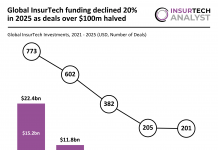AI agents have been making significant headlines recently. To understand their impact, it’s useful to revisit the era of AI assistants and the advancements that transformed these systems into the sophisticated AI agents we know today. Customer experience automation expert Ushur explains.
When ChatGPT was introduced in 2022, it revolutionised the AI landscape with its conversational prowess, understanding of user intent, and creative output. Despite its groundbreaking features, early AI assistants had limitations that paved the way for the development of more advanced AI agents.
The first significant improvement was the enhancement of prompt engineering and custom instructions.
This involved specifying clearer expectations for AI assistants, including their personas and behaviours to avoid. This refinement was crucial in transforming simple assistants into more sophisticated AI agents.
Another breakthrough was enabling AI assistants to reference documents before responding. Initially, these systems often produced inaccurate outputs due to a lack of domain-specific knowledge.
With access to relevant source material, AI agents can now incorporate precise information into their responses, enhancing accuracy and expertise.
Early versions of ChatGPT had gaps in their training datasets, particularly concerning recent events. Integrating search capabilities allowed AI assistants to fetch and incorporate up-to-date information, ensuring they remain relevant and current.
AI assistants have also integrated tools such as calculators and programming environments.
Originally text-based, large language models now utilise mathematical engines like Wolfram Alpha or dedicated compute environments, enabling them to perform complex tasks more efficiently.
Advanced prompt engineering and orchestration techniques have enhanced AI assistants’ reasoning and planning abilities. These improvements allow them to solve complex problems by planning steps in advance and managing intricate projects seamlessly.
Another major advancement in AI technology is the ability of AI assistants to interact with external systems. They can now pull data from business systems and push tasks to external systems, significantly expanding their functionality.
Recent advancements have enabled AI assistants to interact with users beyond text. Users can now upload images and, soon, will leverage cameras and video, broadening the range of possible applications.
This has culminated in the creation of AI agents, capable of handling more complex problems, planning ahead, troubleshooting, using advanced tools, and engaging with users innovatively. AI agents also perform actions in the real world by integrating with various systems.
Challenges in commercialising AI agents
The future of AI agents
The AI community is enthusiastic about AI agents, with major players like OpenAI and Google launching their versions.
Companies such as Ushur are developing AI agents tailored for customer experience automation in industries like healthcare, insurance, and financial services.
Copyright © 2024 InsurTech Analyst










